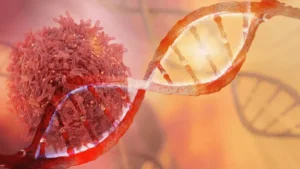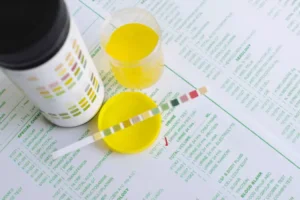
The consequences can also include a criminal record, which can affect future opportunities. Problem drinking complicates life in all kinds of ways—and it can ramp up into legal trouble before you know it. If you’re worried about the consequences of your drinking but having a hard time quitting, it may help to do so with professional support.
The Legal Consequences of Alcohol Abuse
If you host a party where minors are drinking, you could face legal consequences, including fines or even criminal charges. Some states have specific laws targeting social hosts who provide alcohol to minors. Problematic substance use has the potential to negatively impact every area of your life. Explore the legal consequences and long-term impacts of possessing controlled substances, including potential penalties and record expungement options.
Alcohol Laws in the United States: An Overview
This suggests a strong correlation between alcohol misuse and the severity of domestic violence, potentially leading to fatal outcomes. Many employers have zero-tolerance policies regarding alcohol in the workplace. If you’re found drinking on the job or showing up intoxicated, you could be suspended or even lose your job. These rules are even stricter in safety-sensitive industries like construction or transportation, which sometimes enforce random alcohol testing.
- Problematic substance use has the potential to negatively impact every area of your life.
- Legal systems often recognize the exacerbating effect of alcohol on violent behavior, which can lead to more stringent measures against perpetrators who misuse alcohol.
- Each type carries unique legal implications and defenses, which can impact the outcome of a case.
- According to the Society for Human Resource Management (SHRM), employers should prioritize empathy and fairness when dealing with employees struggling with alcohol misuse.
Download the free 20-page booklet, “Rethinking Drinking: Alcohol & Your Health”.
- If you live in a state where cannabis is legal, you can legally possess and use certain amounts of cannabis in specified places, such as your private residence.
- Alcohol addiction treatment will begin with a detox period that focuses on managing any uncomfortable or severe withdrawal symptoms that arise.
- These laws vary by state and are designed to aid those who are unable to seek help on their own due to the severity of their addiction.
- Noncitizens convicted of DUI may face immigration consequences, including visa denial or deportation, especially in light of recent legislation.
- Furthermore, the ADA does not protect employees currently engaging in illegal drug use, including alcohol misuse that violates workplace policies.
Alcohol misuse has been identified as a significant risk factor in incidents of domestic violence. Studies indicate that substance misuse is markedly more prevalent among women in abusive relationships compared to those who are not. For instance, men with alcohol problems are 2 to 4 times more likely to engage in violence against female partners than men without such issues.
Inpatient Opioid Rehab Centers in Colorado

Last chance agreements offer an alternative path, wherein employers may opt not to terminate an employee in exchange for their commitment to undergo substance use treatment and avoid further workplace issues. Workplace policies on alcohol misuse are critical in maintaining a healthy, safe, and efficient work environment. These policies serve as a framework for both preventing alcohol-related issues and addressing them when they occur. According to the Society for Human Resource Management (SHRM), employers should prioritize empathy and fairness when dealing with employees struggling with alcohol misuse.
Legal Consequences of Selling Drugs

If you have trouble following these steps, you may be suffering from alcohol use disorder. Finally, many states also work to keep their streets and public spaces welcome and inviting by prohibiting individuals from engaging in public intoxication. For similar reasons, they also often prevent partygoers and others from drinking in public by outlawing the presence of open containers in public under their open container laws.
- Please contact us free today at and we can connect you with a high-quality treatment program.
- A person under the age of 21 caught purchasing, attempting to purchase or possessing alcohol will be charged with a Class 1 misdemeanor.
- These drugs have a high potential for abuse and have an accepted medical use, sometimes with restrictions.
- It is illegal in every state to provide alcohol to anyone under the age of 21.
- Legal implications for violating workplace alcohol policies can include disciplinary action up to and including termination.
- Professional medical staff can assist in the difficult process of withdrawal, making the transition into sobriety less daunting.
From a legal perspective, the intertwining of alcohol misuse and domestic violence can result in severe consequences. Individuals found guilty of domestic abuse while under the influence can face enhanced penalties, including longer jail sentences, higher fines, and mandatory alcohol treatment programs. Additionally, in child custody cases, a history of alcohol misuse combined with domestic violence can substantially impact parental rights, often resulting in loss of custody or visitation rights. The penalties for public intoxication can range from modest fines to incarceration, with maximum jail time usually less than one year, served in a county jail rather than prison. If you’re caught drinking underage, you may have to pay fines, do community service, or have your driver’s license suspended—even if driving isn’t involved. A criminal record from underage alcohol offenses can also long term effects of alcohol affect future employment opportunities.

A criminal record often hinders employment opportunities, as many employers conduct background checks and may be reluctant to hire individuals with drug-related offenses. In some states, possession convictions can result in the suspension of professional licenses. One common factor is the presence of a controlled substance near schools or playgrounds, which is often seen as a greater public safety threat. Many jurisdictions enhance penalties for offenses committed within a certain distance of these locations. Actual possession occurs when an individual has direct physical control over a controlled substance, such as when the substance is found in their pocket or hand. The prosecution must prove the defendant knowingly had the substance in their custody and was aware of its nature as a controlled substance.
Insurance Providers
We list any treatment center that alcoholism symptoms meets our rehab criteria, giving you the best list of options possible when looking for treatment. The Super Lawyers patented selection process is peer influenced and research driven, selecting the top 5% of attorneys to the Super Lawyers lists each year. Sessions adds that not reporting an arrest when you’re required to is generally viewed as lying about it. “The last thing you want to do in any circumstance is to lie or appear to be lying about an arrest when the policy requires reporting it. Nothing will cost you your job quicker than trying to run from a problem instead of confronting it head-on. Alcoholism is a chronic disease that can lead to serious health problems, including cirrhosis of the liver, pancreatitis, and Wernicke-Korsakoff syndrome.
If you live in a state where cannabis is legal, you can legally possess and use certain amounts of cannabis in specified places, such as your private residence. But you cannot legally transport cannabis across states lines, even between two states where cannabis is legal, since that would violate federal laws against drug trafficking. If you’re engaged in any cannabis-related business, it’s essential to consult with a lawyer about what you can and cannot do. Measuring the presence of drugs is more difficult and is typically done through urine or blood tests. A DUI conviction can subject you to jail time, fines, probation, or driver’s license suspension. These drugs have a high potential for abuse and have an accepted medical use, sometimes with restrictions.